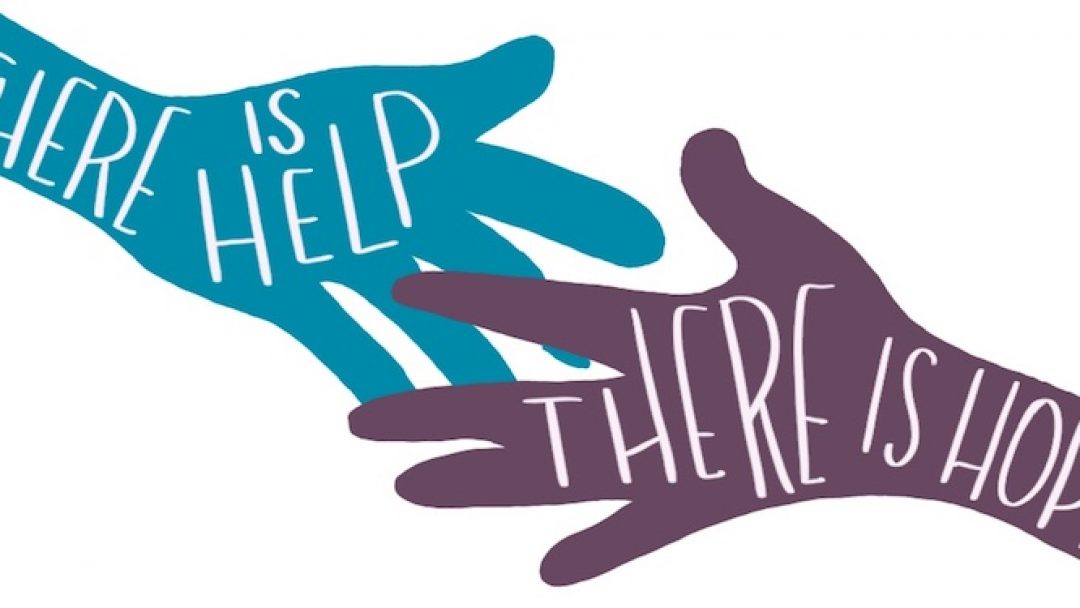Suicide Awareness and Prevention

Last Sunday I had the privilege of speaking at a forum in a congregation who had just experienced the loss of a member by suicide. While mental health struggles are always common in the US, with COVID we are seeing a rise in depression, anxiety, PTSD, substance use and insomnia. Over the coming weeks, I will be addressing mental health concerns as we all strive to maintain our mental, physical, and spiritual health in these trying times. Today’s focus is part one of a two-part series on suicide.
From the dark depths of depression–bipolar, major depressive, PTSD, psychotic (hearing voices telling you to kill yourself or that you are worthless and should die), situational from life events/losses, loneliness and isolation due to COVID, substance use or other–it can seem like the sun will never shine and that all is hopeless. Do not give up. With good treatment, you will get through and a joyful, abundant life filled with hope can be found. The struggle is worth it.
The American Foundation for Suicide Prevention (AFSP) has the following suggestions:
What do I do if I am thinking about suicide?
Tell someone! Your priest and your faith community is there for you. You do not need to suffer in silence.
To get urgent help, call 911 or the National Suicide Prevention Lifeline at 1-800-273-TALK (8255). There is also a Crisis Text Line: Text HOME to 741741. For crisis support in Spanish, call 1-888-628-9454..
How can I help someone who is considering suicide?
If you think someone is contemplating suicide, assume you are the only one who will reach out. When talking to someone who may be struggling with mental health issues AFSP recommends:
- Talk to them in private.
- Listen to their story.
- Tell them you care about them.
- Ask directly if they are thinking about suicide.
- Encourage them to seek treatment or to contact their doctor or therapist.
- Avoid debating the value of life, minimizing their problems or giving advice.
What do I do if someone tells me they are considering suicide?
If someone says they want to take their own life, take that person seriously. Stay with them, and help remove any lethal means. In addition:
- Call the National Suicide Prevention Lifeline at 1-800-273-TALK(8255).
- Text HOME to 741741 to text with a trained crisis counselor from the Crisis Text Line for free, 24/7.
- Escort them to mental health services or an emergency room.
What are the warning signs that someone may be suicidal?
There are several warning signs that could indicate a high risk of suicide, including if a person talks about killing themselves, or reports feeling hopeless, having no reason to live, being a burden to others, feeling trapped and/or experiencing unbearable pain.
The AFSP identifies certain behaviors that may also signal increased risk, especially when related to a painful event, loss or change:
- Increased use of alcohol or drugs
- Looking for a way to end their lives, such as searching online for methods
- Withdrawing from activities
- Isolating from family and friends
- Sleeping too much or too little
- Visiting or calling people to say goodbye
- Giving away prized possessions
- Aggression
- Fatigue
In addition, people who are considering suicide often display one or more of the following moods:
- Depression
- Anxiety
- Loss of interest
- Irritability
- Humiliation/shame
- Agitation/anger
- Relief/sudden improvement
If you or someone you care about is struggling reach out. There is hope.
Suzanne E. Watson, M.D., M.Div.
 The Rev. Suzanne Watson, M.D. came to medicine as a second career after 10+ years of ordained ministry in the Episcopal Church where she served in congregations in California, New Zealand, and Connecticut, as well as on the staff of the Presiding Bishop in New York. She was also a candidate for Bishop of Alaska.
The Rev. Suzanne Watson, M.D. came to medicine as a second career after 10+ years of ordained ministry in the Episcopal Church where she served in congregations in California, New Zealand, and Connecticut, as well as on the staff of the Presiding Bishop in New York. She was also a candidate for Bishop of Alaska.
She attended medical school in her 20s, but left to devote time to raising her family. However, her dream of practicing medicine never died, and at the age of 50 she embarked on this vocational change. Part of her motivation was the loss of her physician husband to suicide. She is strongly committed to mental health advocacy, the reduction of stigma, and suicide prevention
She is currently in her last year of residency in Psychiatry at the University of Nevada, Reno. She is returning to San Diego this Summer and will be working at the VA hospital in La Jolla.